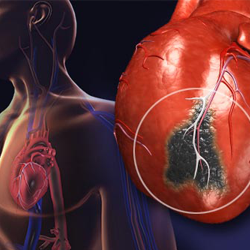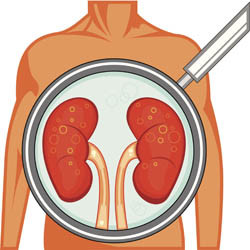
We are here for your better health
A true companion for you
Internal Medicine & Geriatrics
Spectrum of Practices

Asthma
What ?
It is a common long term inflammatory disease of the airways of the lungs. It is characterized by variable and recurring symptoms, reversible airflow obstruction, and bronchospasm.
Symptoms
Symptoms include episodes of wheezing, coughing, chest tightness, and shortness of breath. These episodes may occur a few times a day or a few times per week.
General Reasons
Asthma is thought to be caused by a combination of genetic and environmental factors. Environmental factors include exposure to air pollution and allergens. Other potential triggers include medications such as aspirin and beta blockers.

Anemia
What ?
It’s also spelled anaemia, is usually defined as a decrease in the total amount of red blood cells (RBCs) or hemoglobin in the blood. It can also be defined as a lowered ability of the blood to carry oxygen.
Symptoms
Symptoms include fatigue, weakness, pale or yellowish skin, irregular heartbeats, shortness of breath anddizziness or lightheadedness. Many symptoms can be of another reasons, always better to get the advice of a physician.
General Reasons
The most common reason is shortage of iron, folate and vitamin B-12 in our body. A diet lacking in these and other key nutrients can cause decreased red blood cell production.

COPD
What ?
Chronic Obstructive Pulmonary Disease (COPD) is an umbrella term used to describe progressive lung diseases including emphysema, chronic bronchitis, refractory (non-reversible) asthma, and some forms of bronchiectasis.
Symptoms
This disease is characterized by increasing breathlessness, frequent coughing (with and without sputum), wheezing and tightness in the chest.
General Reasons
Most cases of COPD are caused by inhaling pollutants; that includes smoking, second-hand smoke, fumes, chemicals and dust found in many work environments. Genetics can also play a role.

Coronary Artery Disease
What ?
Coronary artery disease is caused by plaque buildup in the wall of the arteries that supply blood to the heart. Plaque is made up of cholesterol deposits.
Symptoms
You may feel pressure or tightness on the middle or left side of the chest and is generally triggered by physical or emotional stress. You may develop shortness of breath or extreme fatigue with exertion as heart can't pump enough blood to meet your body's needs. This can even cause a heart attack with classic signs include crushing pressure in your chest and pain in your shoulder or arm, sometimes with shortness of breath and sweating.
General Reasons
The general reasons which lead to this condition are smoking, high blood pressure, high cholesterol, diabetes or insulin resistance and sedentary lifestyle.

Diabetics Mellitus
What ?
It is commonly referred to as diabetes, is a group of metabolic diseases in which there are high blood sugar levels over a prolonged period. Symptoms of high blood sugar include frequent urination, increased thirst, and increased hunger.
Symptoms
Symptoms experienced generally are increased thirst and hunger, frequent urination, weight loss or gain that has no obvious cause, fatigue, blurred vision, wounds that heal slowly, nausea and skin infections.
General Reasons
Type 1 diabetes occurs when your immune system, the body's system for fighting infection, attacks and destroys the insulin-producing beta cells of the pancreas. Genetics and lifestyle are the most important ones Type 2 diabetes; where as hereditary too play a role.

Dyslipidemia
What ?
Cholesterol and triglycerides are lipids(fats) that are stored in the body and serve as a source of energy. When lipid levels in the bloodstream are too high or low, this condition is called Dyslipidemia.
Symptoms
Some of the symptoms are asymptomatic disease (coronary artery disease), abdominal pain, acute pancreatitis, confusion and dypsnea, heart disease, aphasia – difficulty in speaking, dizziness, impairment of balance, calf pain when walking, stroke and chest pain.
General reasons
Some general reasons are overproduction and defective clearance of the cholesterol, excessive intake of fatty foods, overuse of alcohol, chronic kidney disease, obesity, diabetes mellitus, underactive thyroid gland and taking certain medicines, birth control pills and drugs.

Hypertension
What ?
Hypertension (HT), also known as high blood pressure, is a long term medical condition in which the blood pressure in the arteries is persistently elevated.
Symptoms
Hypertension is rarely accompanied by symptoms; some with high blood pressure report headaches,lightheadedness, vertigo, altered vision or fainting episodes, which may be indication of other medical conditions.
General reasons
Lifestyle factors that include excess salt, excess body weight, smoking, and alcohol leads to HT. Chronic kidney disease, narrowing of the kidney arteries, an endocrine disorder, or the use of birth control pills are some identifiable causes.

Obesity
What ?
Obesity is a medical condition in which excess body fat has accumulated to the extent that it may have a negative effect on health. Obesity increases the likelihood of various diseases, particularly heart disease and type 2 diabetes.
Symptoms
Generalized symptoms are breathlessness, increased sweating, snoring, inability to cope with sudden physical activity, feeling very tired every day and back and joint pains.
General reasons
Obesity is most commonly caused by a combination of excessive food intake, lack of physical activity, and genetic susceptibility. A few cases are caused primarily by genes, endocrine disorders, medications, or mental illness.

Renal Disease
What ?
Renal disease/ failure, also known as kidney failure, is a medical condition of impaired kidney function in which the kidneys fail to adequately filter metabolic wastes from the blood.
Symptoms
Symptoms may include nausea, vomiting, loss of appetite, fatigue and weakness, sleep problems, changes in how much you urinate, muscle twitches and cramps, swelling of feet and ankles, persistent itching, chest pain, shortness of breath and high blood pressure.
General reasons
Factors that may increases the risk include diabetes, high blood pressure, heart and blood vessel (cardiovascular) disease, smoking, obesity and abnormal kidney structure.
Our spectrum of practice also includes


